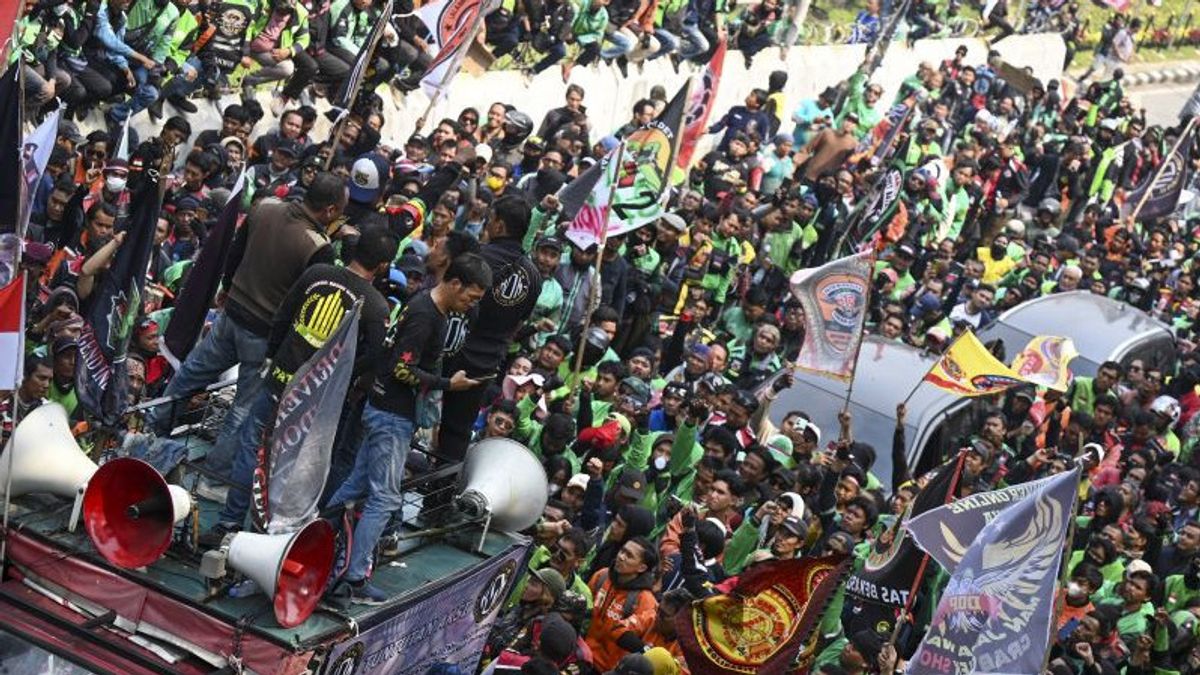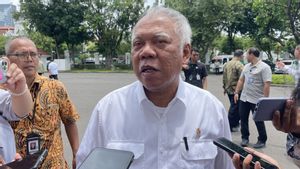JAKARATA - The desire of online motorcycle taxi drivers (ojol) who demand legality status is considered necessary for careful consideration by ojol drivers as non-permanent or gig workers.
"If the status is a working relationship, then ojol drivers must also be prepared with the consequences, such as having to be ready to be laid off if the business is not good and there is a need to reduce the workforce," said labor law expert from Universitas Brawijaya Budi Santoso as reported by ANTARA, Tuesday, September 10.
In practice, said Budi, there is actually a platform for courier companies or delivery of goods whose driver status is workers.
"However, because business is not good, recently the company carried out efficiency and reduced the number of human resources (HR). That must also be considered by ojol drivers when filing demands," he said.
In addition, if the ojol status is formalized, then the applicator as the employer company also has the right to determine or increase the requirements in recruiting its workers, for example, in terms of the maximum worker age of 30 years.
Even though currently, many ojol drivers are over 40 years old.
"So it is very likely that many ojol will not be included in the criteria by the applicator. Meanwhile, at that age, they will also have difficulty finding work in other sectors or companies," said Budi.
Therefore, according to Budi, the partnership scheme as it is today is better than demanding a more bound status. Moreover, ojol as a gig worker should have flexible time in regulating working hours.
"Currently, in terms of legality, ojol is legal and is in Permenhub. However, at this time the Minister of Transportation has not explicitly explained the relationship between ojol drivers and applicators, whether it is a partnership or a work relationship," he also said.
Budi understands that actually what underlies the demand for ojol drivers is due to their declining income factor.
"I still remember that many formal workers resigned and switched to ojol, because their income was large and their working time was flexible. But now the situation is different, now with the increasing number of ojol, the potential for ojol income is less. So in my opinion, this is natural and if the number of ojol is limited now, they will definitely demo," he said.
SEE ALSO:
For this reason, Budi emphasized that there are again impacts that must be considered and considered if indeed ojol drivers still want to formalize their status.
"So, in my opinion, it's useless if you only demand the status if the wages are the same as low," he said.
Meanwhile, regarding tariffs and deductions from applicators, according to Budi, it has actually been agreed upon by all stakeholders, as well as lower and upper limits.
Thus, he said again, it remains only to evaluate whether the tariff distribution is still appropriate or not.
"Is it true that the allegations from ojol drivers that their application in the field exceed the provisions and how to use the funds collected from the ojol drivers, whether their use is correct because they must be returned to their ojol partners. This evaluation is what we are waiting for from the government," he also said.
The English, Chinese, Japanese, Arabic, and French versions are automatically generated by the AI. So there may still be inaccuracies in translating, please always see Indonesian as our main language. (system supported by DigitalSiber.id)















